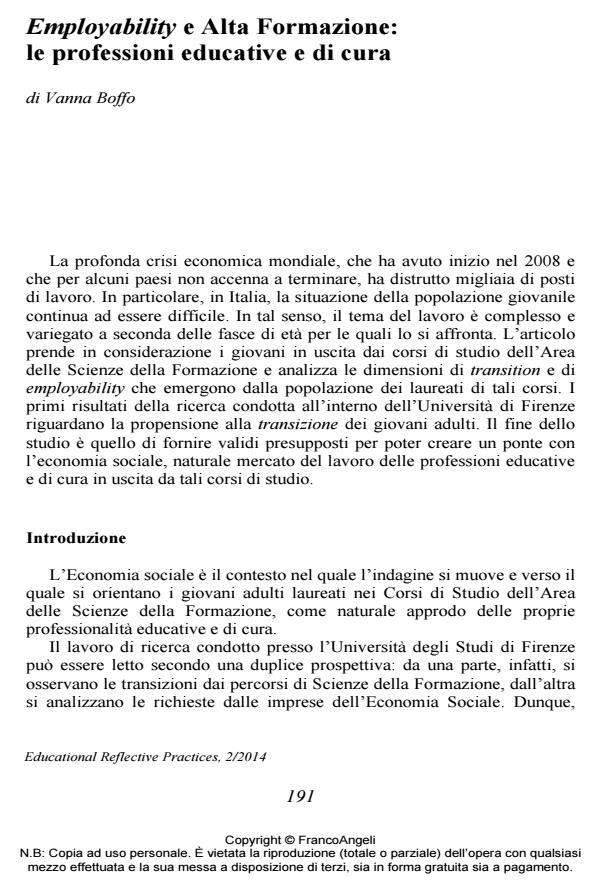Employability e Alta Formazione: le professioni educative e di cura
Titolo Rivista EDUCATIONAL REFLECTIVE PRACTICES
Autori/Curatori Vanna Boffo
Anno di pubblicazione 2015 Fascicolo 2014/2
Lingua Italiano Numero pagine 19 P. 191-209 Dimensione file 158 KB
DOI 10.3280/ERP2014-002012
Il DOI è il codice a barre della proprietà intellettuale: per saperne di più
clicca qui
Qui sotto puoi vedere in anteprima la prima pagina di questo articolo.
Se questo articolo ti interessa, lo puoi acquistare (e scaricare in formato pdf) seguendo le facili indicazioni per acquistare il download credit. Acquista Download Credits per scaricare questo Articolo in formato PDF

FrancoAngeli è membro della Publishers International Linking Association, Inc (PILA)associazione indipendente e non profit per facilitare (attraverso i servizi tecnologici implementati da CrossRef.org) l’accesso degli studiosi ai contenuti digitali nelle pubblicazioni professionali e scientifiche
The deep crises in the Eastern World, especially in some countries of the Europe, from 2007 till now, has destroyed a lot of working place. In particular, in Italy, the situation of the young people is very difficult. Here, we have one of the lowest employment rate than in Europe. In a very dramatic context, the young degree people live the similar situation respect the other adult worker people. The articles analyzes the situation of the Educational and Care world of professions for understanding and evaluating the situation after the Degree in European Adult Education Course at the University of Florence. The results of the Research comes out of the survey developed from October and December 2013 in the Department of Education and Psychology of the University of Florence on the sample of 25 firms in Tuscany Region.
Vanna Boffo, Employability e Alta Formazione: le professioni educative e di cura in "EDUCATIONAL REFLECTIVE PRACTICES" 2/2014, pp 191-209, DOI: 10.3280/ERP2014-002012